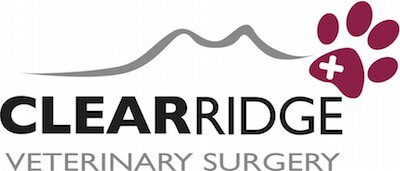Welcoming a new pet into your house is a very exciting time, but remember, it can be quite daunting for the kitten! Being removed from their mother and litter mates can have an effect on your kittens stress level and so their immune system may be compromised too. We recommend you allow your new kitten to settle in with you for 5 - 7 days before making any dietary changes, or having you kitten vaccinated.
It is helpful to get as much information as possible from the breeder regarding the vaccination, worming and flea treatment your kitten has already received.
VACCINATION
Your kitten can be vaccinated from 9 weeks of age, and then a second vaccination is given 3 - 4 weeks after the first. Cats are vaccinated against feline calicivirus, feline herpes virus and feline panleucopenia virus. These basically cause upper respiratory viruses and gastrointestinal problems, so are best avoided as in some cases they can cause life long illness for your cat.
Feline leukaemia virus (FeLV) is another virus which can be vaccinated against. It is especially important in outdoor cats. This virus can be transmitted via the saliva, so cats who fight, or partake in a lot of mutual grooming are most at risk. It can also be passed from the mother to her kittens, so we recommend a blood test prior to vaccination to ensure your kitten isn’t already harbouring the virus. The virus causes a suppression of your cat’s immune system, and can cause tumours to form.
WORMING
Kittens can be wormed from 2 weeks of age, and because worms are easily picked up via transmission through the mothers milk and contact with other animals / contaminated soil etc. Worms can be picked up from the environment, from scavenging or eating raw meat and they can also get worms if they have fleas. Cats who hunt are particularly at risk. Worms can be a problem for young children or older people living with you, as they are more likely to contract them from your kitten.
We recommend the following worming schedule;
- Under 12 weeks of age ; worm every 2 weeks
- 12 weeks -6 months of age; worm every 4 weeks
- Older than 6 months of age; worm ever 3 months
FLEAS AND TICKS
Fleas and ticks are blood sucking parasites which can live on your kitten. Your kitten may already have contracted fleas from its mother or other in contact animals. Large numbers of fleas can cause anaemia in small kittens, as well as being an irritant and transmitting tapeworm. Various veterinary licenced flea and tick treatments are available, and your vet can discuss the most suitable product for your kitten.
NEUTERING
We recommend that all cats should be neutered, unless you plan to breed from them, a decision you should not make lightly. Neutering is beneficial to control the cat population and reduce the hundreds of unwanted pets each year. There are medical reasons to neuter as well; including decreasing, or in some cases totally eliminating the risk of many diseases related to the genital tract, as well as diseases influenced by sex hormones.
Your kitten can be neutered from about 5 months of age. We really advised that our kitten isn’t allowed outside unsupervised until they have been neutered.
MICROCHIPPING
We would strongly recommend that our kitten is microchipped, especially is they are going to be allowed to go outside. A microchip is a small electronic chip which is sterilely inserted underneath the skin between the shoulder blades and can be detected by a special scanner. All vets, the police and the RSPCA have such scanners. Owners details are linked to the microchip number on a national data base which is open 24 hours a day.
INSURANCE
At some stage of your kittens life they may require further more intensive treatment eg after a road traffic accident. Such treatment can potentially become very expensive and the best way to ensure you are able to cope financially if the unthinkable happens is to make sure your kitten is insured. There are many different insurance companies, which provide very different options of cover. We would recommend that you read the information carefully before you sign up with a company and would recommend a “cover for life” type policy.
FEEDING
We recommend that you keep your kittens diet consistent with that the breeder has been feeding for the first 5 - 7 days, to try and prevent any stomach upsets. Your kitten’s nutritional requirements will vary with age and so feeding your kitten an appropriate age related diet is important. Complete kitten foods are widely available and should be fed until your cat reaches skeletal maturity at between 9 and 12 months of age. After this an adult diet should be fed. No additional nutrients of supplements should be required if a high quality diet is fed.
Any changes to our kitten’s diet should be made gradually over 3 - 5 days to avoid intestinal upsets. Contrary to popular belief, milk is not essential in the diet of weaned kittens. In fact, after weaning their ability to digest lactose becomes progressively less efficient and feeding milk can result in diarrhoea.
We look forward to meeting you and your new addition in the near future, and if you have any further queries don’t hesitate to contact the surgery.




